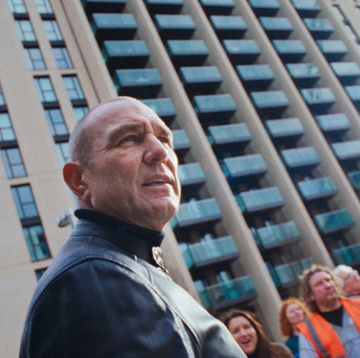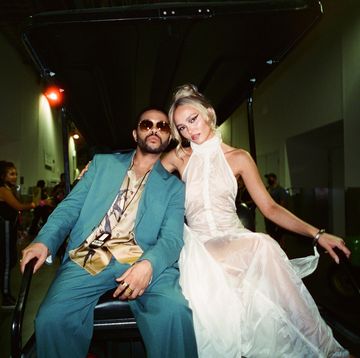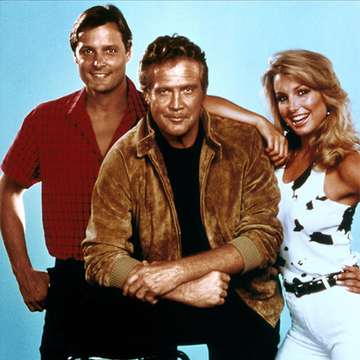He’s considered the greatest actor of his generation. He’s one of only three male actors to win three Oscars, with a possible fourth statue on the horizon for his role in Phantom Thread. But what’s the secret to all of Daniel Day-Lewis’s Academy Award nominated roles? We reached out to UCLA School of Theater, Film and Television lecturer Tom Nunan to break down the key to Day-Lewis’s greatest characters, those that earned him an Academy Award nomination and, in some cases, a win.
Christy Brown — My Left Foot (1989)
For the actor's first Oscar nomination and win, Day-Lewis transformed into an iconic writer and painter suffering from cerebral palsy. This is considered DDL's finest performance for its incredible demands.
The Key: “The thing that I think people underestimate is that it’s a full body performance. He’s not just having to disfigure his limbs in a way that’s unnatural to the rest of us and painful to see, it’s watching how he struggles to sound normal to a world that sees someone that is not normal to them.”
Gerry Conlon — In the Name of the Father (1993)
Day-Lewis plays one of the Guildford Four, wrongly imprisoned for a 1974 pub bombing in England. This is an example where the film's subject matter seems to eclipse Day-Lewis's performance.
The Key: "Appropriately, he realised the subject matter of this film was bigger than his performance. He was making sure the subject matter registered in the most real way possible. I think he was doing service to the film to not go after his own victory. This was a team effort more than any other film he’s been in."
Bill the Butcher — Gangs of New York (2002)
As the ruthless mustachioed gang leader, Day-Lewis doesn’t have a lot of screen time in the movie, but when he’s there he’s extraordinary.
The Key: “The thing that was pretty cool was that speech he gives when he’s draped in that American Flag. The way he’s slumped in his chair, the feet spread apart, this cocky pseudo monarch that is monologuing—it’s rare to see corruption so vividly displayed by one actor. That scene is classic for the casual nature that he wore his villainy.”
Daniel Plainview — There Will Be Blood (2007)
For his second Oscar win, Day-Lewis transforms into the unstoppable oilman. With this role, he makes the viewer understand that Plainview is a man who will go through any lengths to get what he wants.
The Key: “Everything from his bizarre vocal patterns in that movie, where he’s practically shouting every time he speaks, to the way that he marches through the movie with a gait that is almost inhuman, speaks to a level of ambition and greed that most of us aren’t familiar with.”
Abraham Lincoln — Lincoln (2012)
Five years later, Day-Lewis morphs into the most beloved American president. Though audiences were initially confused about his voice for Lincoln, Day-Lewis was evoking a very specific accent of the time.
The Key: “The character seems to be in physical pain throughout the movie. It’s as though the weight of the world is on his shoulders. And it is. The entire union is about to fall apart on his watch.”
Reynolds Woodcock — Phantom Thread (2017)
For what Day Lewis has said is his final role, he received his fifth Best Actor nomination for playing the uppity master dressmaker. The actor did something with Woodcock that he’d never done with a character: He made it funny.
The Key: "What is extraordinary about Phantom Thread compared to his other performances is it’s a more subtle evocation of a character. He certainly has stitched together a performance that makes sense all the way through the film. It’s quirkier and more peculiar on a natural basis compared to many of his other roles."
Matt Miller is a Brooklyn-based culture/lifestyle writer and music critic whose work has appeared in Esquire, Forbes, The Denver Post, and documentaries.












